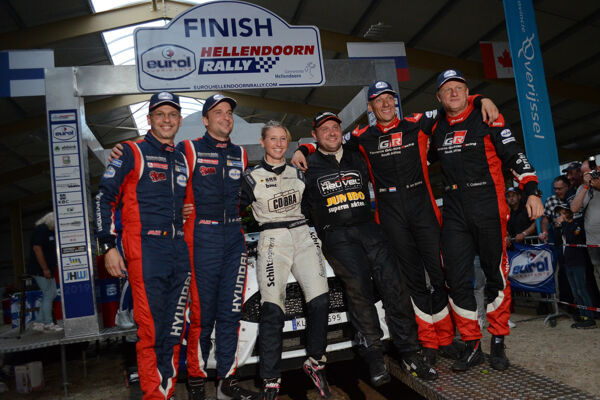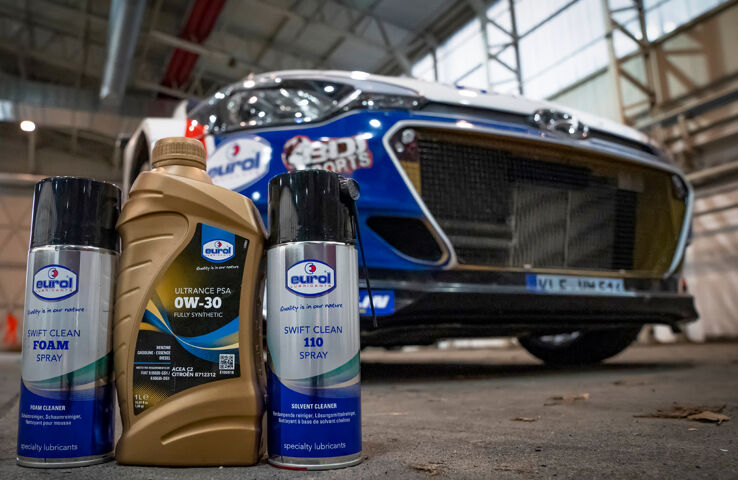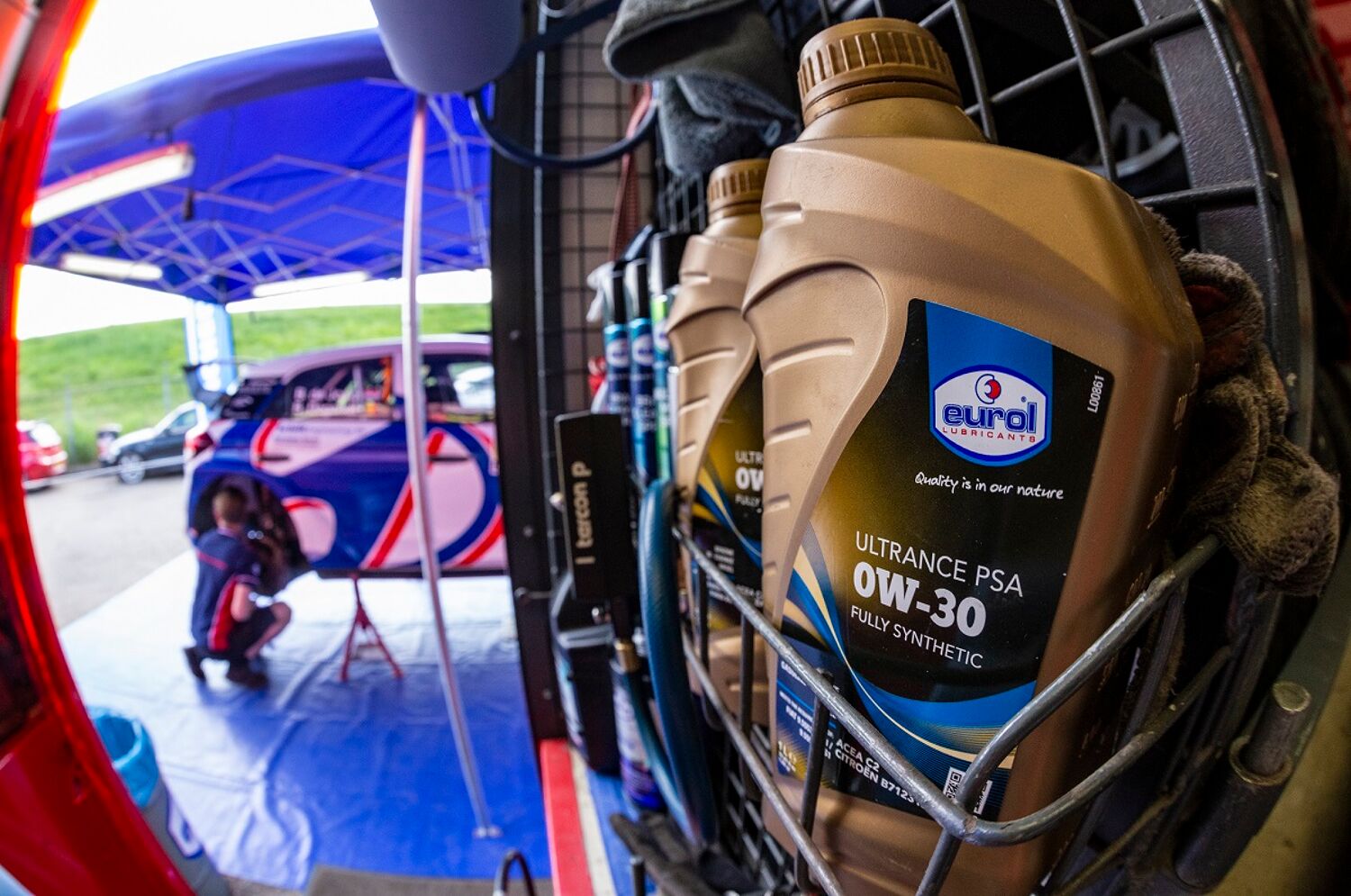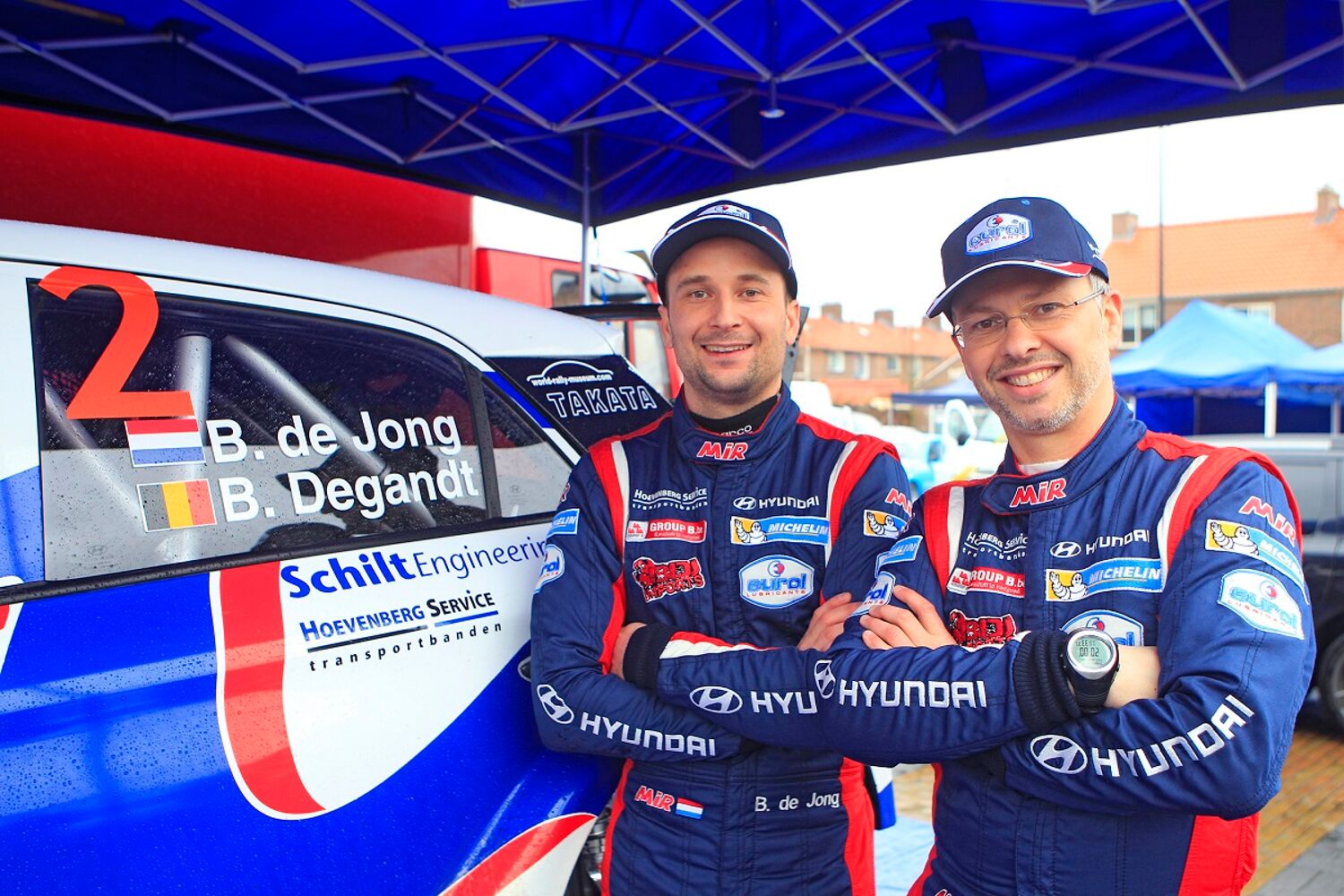
Van den Heuvel and Bakker win 38th edition Eurol H...
Rally driver Jasper van den Heuvel and his navigator Lisette Bakker have won the Eurol Hellendoorn Rally for the first time in their career. Rally team Bernhard ten Brinke ...
4 mai 2023

Given his performance, the current frontrunner in the Dutch rally championships has nothing left to prove. His Hyundai i20 R5 also deserves a special mention as the Korean conglomerate's first rally car, which instantly proved its success at the WRC level. It appears to be a perfect match for De Jong, who understands the importance of proper auto maintenance and not leaving anything to chance. In fact, the 1.6 GDI engine and the turbo compressor is lubricated with custom oil created by chief sponsor Eurol. The Dutch lubricant producer, which operates in various branches of the motor racing industry, sees an inspiring ambassador in this talented rally driver. "Bob de Jong has exploded onto the scene with his many wins and uses WRC materials, which is among the best in the world," says Business Development Manager of Special Lubricants Dirk van der Veen.
Eurol was tasked with finding the right oil to keep the finely-tuned Hyundai engine running smoothly under extremely conditions. This is a smaller model of the two-litre engine in the i30N street version, with a different crankshaft and connecting rods. As soon as the turbo compressor reaches the full one-and-a-half bars, the engine peaks at 280 HP, which is impressive for a 1.6 GDI engine. "The maintenance schedule recommends a rebuild or a replacement every 3,000 kilometres," says De Jong. "On average, we use between 25 and 40 litres of oil a year. The engine uses six litres – much more than the DS3, which only uses 3.5 litres. In addition to less pollution, this means we only have to change the oil every two or three rallies instead of after every event. The engine block uses very little oil, although I have to say it does get mixed with diesel fuel, which is caused by being so finely tuned. When the throttle is closed, the injectors continue to work, partly to keep the ALS system running and to maintain the turbo pressure. In accordance with FIA regulations, all R5's have to have a pop-off valve, which is a mechanical safeguard that prevents the teams from exploiting electronic loopholes. Once the turbo reaches 1.5 to 1.6 bars, a valve opens and releases the pressure until the gas pedal is released. This also happens unintentionally with sudden acceleration, for example in the first gear in a hairpin bend."
Technology operating under such extreme conditions places extremely specific demands on lubricants. Eurol, which uses the sport as a calling card to showcase its solid reputation, set up the Specialty Lubricants department several years ago, run by Dirk van der Veen. "Unlike major car manufacturers, who dictate the specifications, it's not about volume. During the development phase, we don't have to think about things like sales margins; instead, we are free to pursue the best of the best when it comes to specific technologies. We're talking batches as little as a few dozen litres. In this case, we analysed the oil Hyundai uses in the WRC in our lab to determine the ingredients and additives it contains. Among other things, this would allow us to compensate for crankcase dilution. That was our jumping off point. Another benefit of rally cars is that you don't have the same concerns or restrictions as you do with modern street cars, like soot filters and internal contamination caused by a bad mixture."

Eurol's Specialty Lubricants department develops transmission oil and differential oil, as well as lubricants for wheel bearings, homokinetic joints, and uniball bearings. 'We have to be much more critical,' explains Van der Veen. "Oil is mixed with additives and a thickener, which tend to separate under high temperatures and high pressure. This is often the case with open systems, such as homokinetic joints. This is known as bleeding oil. We managed to prevent this with our SYNGIS Technology, which is entirely unique." The technology expert demonstrates the difference with cheaper lubricating greases. When applied to a piece of paper, the SYNGIS Technology is the only one that doesn't leak through; when smeared onto a metal plate, it doesn't move, unlike the other two alternatives. When heated, it barely slides off and it also passes the water test. When Van der Veen adds a handful of sand, it is visibly encapsulated in the grease and cannot cause any mechanical damage. In the final test, he spins a bearing under 300 kg pressure. With the cheaper lubricants, an abrasive sound is heard as the metal wears. This is not the case with the SYNGIS Technology. "Convinced?" asks Van der Veen. "The product is also dirt, salt, and acid-resistant. At Eurol, we want to win on all fronts." Bob de Jong is proof of this.


Rally driver Jasper van den Heuvel and his navigator Lisette Bakker have won the Eurol Hellendoorn Rally for the first time in their career. Rally team Bernhard ten Brinke ...

Rally driver Jasper van den Heuvel and his navigator Lisette Bakker have won the Eurol Hellendoorn Rally for the first time in their career. Rally team Bernhard ten Brinke ...
